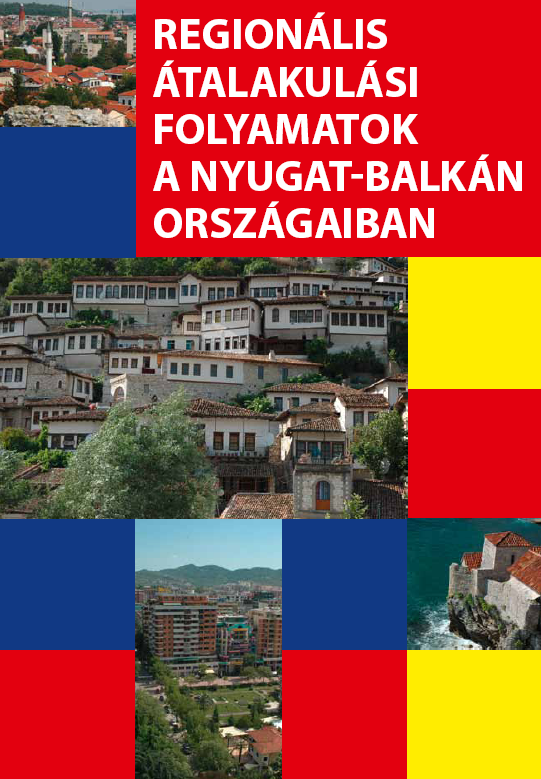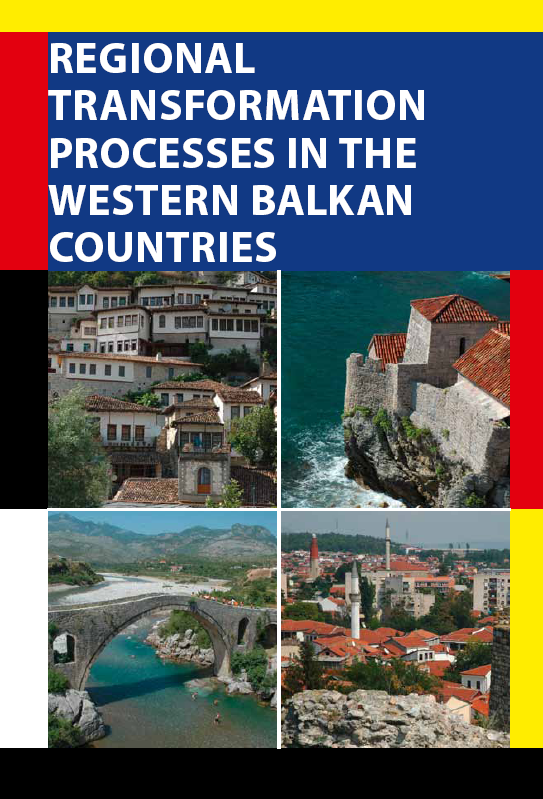
REGIONAL TRANSFORMATION PROCESSES
IN THE WESTERN BALKAN COUNTRIES
International conference
Pécs, Hungary
24–25 February 2011
Organisers
Centre for Regional Studies of the Hungarian Academy of Sciences
Hungarian Regional Science Association
University of Pécs Faculty of Business and Economics
Registration (online registration is now closed)
Applicants from non EU27 Balkan countries
Applicants from EU27 (or other) countries except for Hungary
Applicants from Hungary
Communication
First circular
Photogallery (new!)
Venue
University of Pécs Faculty of Business and Economics, The Great Hall (Dr. Halasy-Nagy József Aula) (Pécs, Rákóczi street 80.)
Map (jpg)
Objective of the Conference
The Conference is organised jointly by the Centre for Regional Studies of Hungarian Academy of Sciences, the Hungarian Regional Science Association and the Faculty of Economics and Business of University of Pécs. Presentations will build upon results of research project undertaken by the Centre for Regional Studies of Hungarian Academy of Sciences and OECD LEED Trento Centre for Local Development, Employment and Labour Markets. The books published in English and Hungarian languages will be released at the Conference and participants will discuss its key findings. The conference aims to foster opportunities for discussion and dialogue among policy makers, researchers, students, tertiary education practitioners, professional associations, representatives of academic staff and other stakeholders.
PROGRAMME
Five plenary sessions will be held during the Conference. The languages of the Conference are Hungarian and English, interpretation will be provided.
24th February
Plenary session 1 Chair: Gyula Horváth
10.00–10.15 Welcome address
Zsolt Páva mayor, City of Pécs
Gábor Rappai dean, Faculty of Business and Economics of University of Pécs
10.15–10.30 Gyula Horváth director, professor, Centre for Regional Studies of Hungarian Academy of Sciences, Faculty of Business and Economics of University of Pécs
Conference objectives
10.30–10.50 Zoltán Hajdú scientific advisor, Centre for Regional Studies of Hungarian Academy of Sciences
Political transition and the new Balkan states
10.50–11.10 István Loránd Szakáli director of department, Ministry for National Economy State Secretariat for Foreign Economic Affairs
Hungary and Western Balkan countries on the road towards economic integration. An opportunity or a necessity?
11.10–11.30 Iván Illés scientific advisor, Centre for Regional Studies of Hungarian Academy of Sciences
Dilemmas surrounding EU accession
11.30–11.50 Patrick Dubarle former principal administrator at the OECD Public Governance and Territorial Development Directorate, secretary of the OECD Working Party on Regional Development Policies, Paris
Regional development and entreprise
11.50–12.10 Franz Schausberger Professor, Chairman of the Board, Institute of the Regions of Europe (IRE), Salzburg, Chairman of the Working group on Western Balkans of the Committee of the Regions
Subsidiarity, regionalism, decentralisation in the Balkans
12.10–12.30 Debate and comments
12.30–14.00 Lunch (on the 3rd floor)
Plenary session 2 Chair: Zoltán Hajdú
14.00–14.20 István Pásztor vice-president of the Executive Council of Autonomous Province Vojvodina and provincial secretary for economy, Novi Sad
The development difficulties of a region in the Balkans: the case of Vojvodina
14.20–14.40 Ferenc Erdősi scientific advisor, Centre for Regional Studies of Hungarian Academy of Sciences
Transport in the Balkans
14.40–15.00 Imre Csalagovits head of VÁTI Hungarian Public Nonprofit Limited Liability Company for Regional Development, South East European Joint Technical Secretariat
Transnational co-operation and the Balkans – The South East Europe Transnational Cooperation Programme
15.00–15.20 János Isaszegi major general, Hungarian Defence Forces
Social, political conflicts – military responses in the Balkans, 1991–1999
15.20–16.00 Coffee break
Discussion forum Chair: László Faragó
16.00–17.30 Debate and comments
19.00 Reception (Hotel Palatinus, Bartók Hall)
25th February
Plenary session 3 Chair: László Faragó
9.00–9.20 Ilona Pálné Kovács head of Transdanubian Research Institute Centre for Regional Studies of HAS, professor, Faculty of Humanities of University of Pécs
Transformation of the territorial system of public administration
9.20–9.40 Gábor Lux research fellow, Centre for Regional Studies of Hungarian Academy of Sciences
Disintegration and restructuring of the industry
9.40–10.00 Zoltán Gál senior research fellow, Centre for Regional Studies of Hungarian Academy of Sciences
Transformation of the financial sector
10.00–10.20 Szilárd Rácz scientific secretary, Centre for Regional Studies of Hungarian Academy of Sciences
Urban network of the Western Balkans
10.20–11.00 Coffee break
Plenary session 4 Chair: Zoltán Hajdú
11.00–11.20 Tamás Hardi senior research fellow, Western Hungarian Research Institute Centre for Regional Studies of HAS
Rural areas of the Balkans
11.20–11.40 Zoltán Pámer advisor, South Transdanubian Regional Development Agency
Regional development policies
11.40–12.20 Debate, comments
12.20–12.30 Gyula Horváth Closing speech. About the results and further directions of the research
12.30–14.00 Lunch (on the 3rd floor)
Conference publications
 |
in Hungarian
Centre for Regional Studies
of the Hungarian Academy of Sciences
Pécs, 2010 614 p.
|
 |
Centre for Regional Studies
of the Hungarian Academy of Sciences
Pécs, 2011 640 p.
|
Accomodation
To be booked individually. The conference service provider: the Hotel Palatinus City Center ***. Registration form of Hotel Palatinus City Center. More information about the opportunities at www.booking.com.
Local organization
Centre for Regional Studies of the Hungarian Academy of Sciences
Katalin Süle, head of department
E-mail: sule@rkk.hu
Tel: +36 72 523 824
Fax: +36 72 523 803
Sponsors
The Conference is part of the project titled "The Socialisation of Regional Science" whose beneficiary is the Centre for Regional Studies of the Hungarian Academy of Sciences.
The Conference is sponsored by the European Union and co-financed by the European Social Fund and the Ministry for National Development and Economy.
 |
The project is sponsored
by the European Union and
co-financed by the European Social Fund .
|